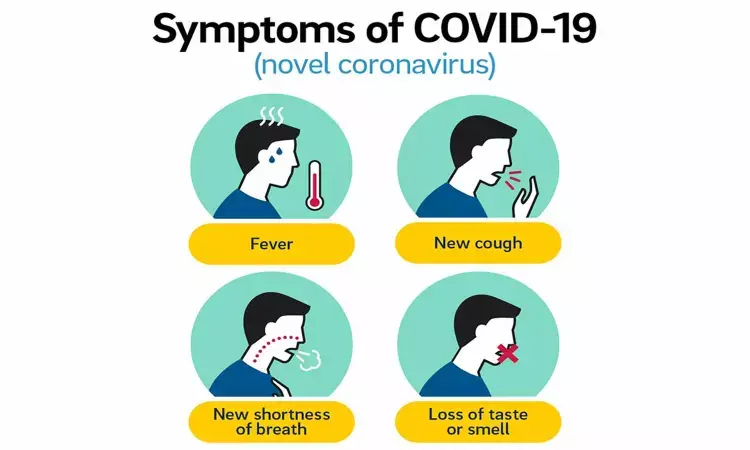- Home
- Medical news & Guidelines
- Anesthesiology
- Cardiology and CTVS
- Critical Care
- Dentistry
- Dermatology
- Diabetes and Endocrinology
- ENT
- Gastroenterology
- Medicine
- Nephrology
- Neurology
- Obstretics-Gynaecology
- Oncology
- Ophthalmology
- Orthopaedics
- Pediatrics-Neonatology
- Psychiatry
- Pulmonology
- Radiology
- Surgery
- Urology
- Laboratory Medicine
- Diet
- Nursing
- Paramedical
- Physiotherapy
- Health news
- Fact Check
- Bone Health Fact Check
- Brain Health Fact Check
- Cancer Related Fact Check
- Child Care Fact Check
- Dental and oral health fact check
- Diabetes and metabolic health fact check
- Diet and Nutrition Fact Check
- Eye and ENT Care Fact Check
- Fitness fact check
- Gut health fact check
- Heart health fact check
- Kidney health fact check
- Medical education fact check
- Men's health fact check
- Respiratory fact check
- Skin and hair care fact check
- Vaccine and Immunization fact check
- Women's health fact check
- AYUSH
- State News
- Andaman and Nicobar Islands
- Andhra Pradesh
- Arunachal Pradesh
- Assam
- Bihar
- Chandigarh
- Chattisgarh
- Dadra and Nagar Haveli
- Daman and Diu
- Delhi
- Goa
- Gujarat
- Haryana
- Himachal Pradesh
- Jammu & Kashmir
- Jharkhand
- Karnataka
- Kerala
- Ladakh
- Lakshadweep
- Madhya Pradesh
- Maharashtra
- Manipur
- Meghalaya
- Mizoram
- Nagaland
- Odisha
- Puducherry
- Punjab
- Rajasthan
- Sikkim
- Tamil Nadu
- Telangana
- Tripura
- Uttar Pradesh
- Uttrakhand
- West Bengal
- Medical Education
- Industry
Loss of smell and taste most common symptoms in Covid 19 patients with high recovery rate

CALIFORNIA - In recent times, Loss of smell and taste has been anecdotally linked to COVID-19 infections.
Researchers at UC San Diego Health have reported the first empirical findings that strongly associate sensory loss with COVID-19, the respiratory disease caused by the novel coronavirus. The study has been published in the journal International Forum of Allergy & Rhinology,
"Based on our study, if you have smell and taste loss, you are more than 10 times more likely to have COVID-19 infection than other causes of infection.
The most common first sign of a COVID-19 infection remains fever, but fatigue and loss of smell and taste follow as other very common initial symptoms," said Carol Yan, MD, an otolaryngologist and head and neck surgeon at UC San Diego Health.
"We know COVID-19 is an extremely contagious virus. This study supports the need to be aware of smell and taste loss as early signs of COVID-19."
Yan and colleagues surveyed 1,480 patients with flu-like symptoms and concerns regarding potential COVID-19 infection who underwent testing at UC San Diego Health from March 3 through March 29, 2020. Within that total, 102 patients tested positive for the virus and 1,378 tested negative. The study included responses from 59 COVID-19-positive patients and 203 COVID-19-negative patients.
Yan said the study demonstrated the high prevalence and unique presentation of certain sensory impairments in patients positive with COVID-19. Of those who reported loss of smell and taste, the loss was typically profound, not mild. But encouragingly, the rate of recovery of smell and taste was high and occurred usually within two to four weeks of infection.
"Our study not only showed that the high incidence of smell and taste is specific to COVID-19 infection, but we fortunately also found that for the majority of people sensory recovery was generally rapid," said Yan. "Among the Covid-19 patients with smell loss, more than 70 percent had reported improvement of smell at the time of survey and of those who hadn't reported improvement, many had only been diagnosed recently."
Sensory return typically matched the timing of disease recovery. Interestingly, the researchers found that persons who reported experiencing a sore throat more often tested negative for COVID-19.
In an effort to decrease risk of virus transmission, UC San Diego Health now includes loss of smell and taste as a screening requirement for visitors and staff, as well as a marker for testing patients who may be positive for the virus.
Other known symptoms of COVID-19 include fever, fatigue, cough and difficulty breathing. Respondents in Yan's study were most often persons with milder forms of COVID-19 infection who did not require hospitalization or intubation.
The findings, she said, underline the importance of identifying early or subtle symptoms of COVID-19 infection in people who may be at risk of transmitting the disease as they recuperate within the community.
"It is our hope that with these findings other institutions will follow suit and not only list smell and taste loss as a symptom of COVID-19, but use it as a screening measure for the virus across the world," Yan said.
for further references log on to:
Dr Kamal Kant Kohli-MBBS, DTCD- a chest specialist with more than 30 years of practice and a flair for writing clinical articles, Dr Kamal Kant Kohli joined Medical Dialogues as a Chief Editor of Medical News. Besides writing articles, as an editor, he proofreads and verifies all the medical content published on Medical Dialogues including those coming from journals, studies,medical conferences,guidelines etc. Email: drkohli@medicaldialogues.in. Contact no. 011-43720751


